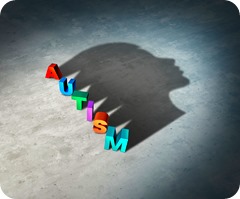 A new study holds out some hope for families who already have a child with autism spectrum disorder (ASD), and the reduction in risk of ASD in a future child. Previous population studies have demonstrated that maternal prenatal vitamin intake, particularly folic acid, appears to reduce the risk of ASD by about 40%. This is the first study to suggest that maternal use of prenatal vitamins may reduce ASD in siblings of children with ASD.
A new study holds out some hope for families who already have a child with autism spectrum disorder (ASD), and the reduction in risk of ASD in a future child. Previous population studies have demonstrated that maternal prenatal vitamin intake, particularly folic acid, appears to reduce the risk of ASD by about 40%. This is the first study to suggest that maternal use of prenatal vitamins may reduce ASD in siblings of children with ASD.
A Canadian study, the public health agency of Canada reports that about one in every 66 Canadian children and adolescents aged 5 to 17 has ASD. Previous research has shown that younger siblings of children with ASD are up to 13 times more likely to be diagnosed with ASD than those in the general population. Another way of looking at it is that the rate of ASD in families who have a child with ASD is about 1 in 5 siblings.
The current study prospectively enrolled mothers who had a child with diagnosed ASD and who were either pregnant or planning a pregnancy. Women were recruited from the Makers of Autism Risk in Babies: Learning Early Signs (MARBLES) cohort study. The sample included 241 younger siblings of which 58% were boys, with a mean age of 36.5 months at the final follow-up encounter.
While 96% of mothers took prenatal vitamins during pregnancy, only 36% took vitamins in the 6 months preceding pregnancy. The prevalence of ASD was 14.1% in children whose mothers took prenatal vitamins in the first month of pregnancy and 32.7% in children whose mothers did not.
In addition, among children with ASD, those whose mothers took prenatal vitamins also had significantly lower ASD symptom severity and higher cognitive scores than children whose mothers did not take vitamins in the first month. And, the intake of folic acid of 600 mcg or more and a higher total daily iron intake during the first month of pregnancy were each associated with lower estimated ASD risks.
Commentary: It has been known that folic acid is essential for brain development and several mechanisms that may influence the risk of ASD, but we have a long way to know cause and effect, and in the case of this study, how prenatal vitamins may be reducing the risk of ASD in those who are at increased risk. The positive effect seen in this study, is significant…and very encouraging, especially for families who are predisposed to having another child with ASD. This study also points out the benefit of pre-pregnancy planning, and mothers taking measures towards optimal health and supplementation at least 6 months prior to pregnancy attempts
Reference: Schmidt R, et al. Association of maternal prenatal vitamin use with risk for autism spectrum disorder recurrence in young siblings. JAMA Psychiatry 2019 Feb 27; 77:391

